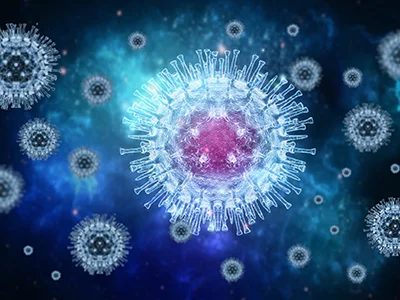
Everything You Need To Know About Monkeypox
Written By: Andrew H. Austin
Published On: Aug 9,2023
Introduction
Monkeypox, a rare and relatively unknown viral disease, has garnered attention due to its similarities with the better-known smallpox and its potential to cause outbreaks in human populations. This essay aims to provide a comprehensive overview of monkeypox, including its origins, transmission, symptoms, diagnosis, treatment, and prevention.
1. Origins and Transmission:
Monkeypox is a zoonotic viral disease, meaning it can be transmitted from animals to humans. It was first identified in 1970 when outbreaks occurred in monkeys kept for research purposes, hence the name "monkeypox." However, humans can contract the disease through direct contact with infected animals, primarily rodents, monkeys, and other mammals.
Human-to-human transmission is possible but is generally limited and less efficient than in diseases like measles or chickenpox. Transmission occurs through close contact with infected individuals, respiratory droplets, or contact with contaminated materials like bedding or clothing.
2. Symptoms:
The symptoms of monkeypox are similar to those of smallpox, although generally milder. They typically appear within 7 to 14 days after exposure and include fever, headache, muscle aches, fatigue, and a distinctive rash. The rash starts as raised bumps that evolve into pustules and then scab over. The rash usually begins on the face and then spreads to other parts of the body.
Although monkeypox is usually a self-limiting disease, severe cases can occur, especially in individuals with weakened immune systems. Complications may include secondary bacterial infections, pneumonia, and encephalitis.
3. Diagnosis and Treatment:
Diagnosing monkeypox can be challenging due to its resemblance to other rash-causing illnesses. Laboratory tests are necessary to confirm the infection, which involves detecting the virus's genetic material or antibodies in blood samples.
There is no specific antiviral treatment for monkeypox, but supportive care can help manage symptoms. Pain relievers, antipyretics, and fluids are commonly used. In severe cases, patients may require hospitalization and specialized medical attention.
4. Prevention:
Preventing monkeypox primarily involves reducing the risk of exposure to the virus. This can be achieved by avoiding contact with animals that could potentially carry the virus, especially those showing signs of illness. Additionally, practicing good hygiene, such as regular handwashing, can help reduce the risk of transmission.
Vaccination is another preventive measure. The smallpox vaccine can provide some protection against monkeypox due to their genetic similarities, but the smallpox vaccine is no longer routinely administered since smallpox has been eradicated. Research is ongoing to develop specific vaccines against monkeypox.
5. Global Concerns:
Monkeypox has the potential to cause outbreaks in regions where the virus is endemic, especially in Central and West African countries. The disease's zoonotic nature, along with increased human-animal interactions and global travel, raises concerns about its spread beyond endemic areas.
International collaboration is crucial for monitoring and controlling monkeypox outbreaks. Rapid identification, isolation of cases, contact tracing, and public awareness campaigns play vital roles in preventing and mitigating the disease's spread.
In conclusion, monkeypox is a rare viral disease with the potential to cause outbreaks in human populations. Its origin in animals, its transmission mechanisms, and its symptoms closely resemble those of smallpox, albeit usually milder. Diagnosing and treating monkeypox require medical expertise, and prevention efforts focus on avoiding exposure, practicing good hygiene, and potential vaccination. As the world becomes more interconnected, vigilance and collaboration are essential to preventing and managing potential monkeypox outbreaks.
"To checkout more about recent scenarios and on-going situation in world visit https.getallpapers.com"
Related Posts
Popular Article

A Step-by-step Guide to write a Essay
12.1.2023

How to create an outline for a thesis
20.1.2023

How to brainstorm ideas for research
27.1.2023





